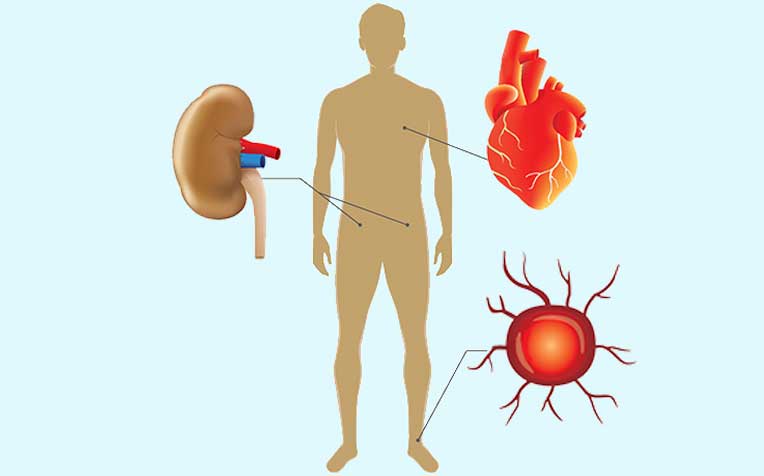
Diabetes, when poorly-controlled, results in multiple complications.
How can diabetes affect your kidneys?
Diabetic kidney disease (diabetic nephropathy) starts with protein (albumin) leak in the urine. At this stage, the patient with diabetes may not have any symptoms due to kidney disease. However, this early stage can be identified easily by doing a urine test.
"Protein leak in the urine is the earliest sign of diabetic kidney disease and if left untreated, it can progress to kidney failure, eventually requiring dialysis," says Dr Suresh Rama Chandran, Associate Consultant from the Department of Endocrinology, Singapore General Hospital (SGH), a member of the SingHealth group.
What you can do to protect your kidneys
Urinary protein leak improves with improvement in glucose and blood pressure. Certain blood pressure medications (ACEI/ARB) are also used to reduce urinary protein leak and retard further progression of diabetic kidney disease. If you are found to have urinary protein leak, these medications will be recommended even if your blood pressure is normal.
How can diabetes affect your nerves?
Diabetic nerve disease (diabetic neuropathy) most commonly affects the nerves of the upper and lower limbs. It can also affect nerves that control the eye and nerves of the face and head.
Most common symptoms experienced are a tingling, burning, and pricking sensation or numbness of the hands and feet.
If diabetes is poorly-controlled, the nerve disease gets worse and spreads to involve larger regions of the limbs. Many patients are unaware of their reduced ability to sense pain and touch. This puts them at risk of injuries to their limbs that go unnoticed (e.g. burns from walking barefoot on a hot surface, injury from stepping on a sharp object). These wounds are exposed to contamination from the environment and get infected.
If not identified early and treated, the infection may spread deeper to involve the muscle and bone, eventually requiring amputations.
What you can do to protect your feet
It is important to check your feet regularly for any injuries, wounds, blisters and skin thickening (callus). You should also attend an annual diabetic foot screening with your healthcare provider to check for any reduced sensation and blood flow to your feet.
How diabetes can affect the heart and blood vessels
Heart and blood vessels (cardiovascular) diseases arise from poorly-controlled diabetes associated with high blood pressure and other risk factors, leading to heart attacks, strokes and amputation of limbs.
What you can do to protect your heart and blood vessels
The following measures can help to reduce your risk of these complications:
- Regular exercise (at least 150 minutes per week). Consult your doctor before starting a new exercise regimen.
- Quit smoking.
- Keep your glucose in the target range with lifestyle measures and medications.
- Keep your blood pressure in the target range with lifestyle measures and medications.
- Take the medications prescribed by your doctor regularly. These may include aspirin, statin, ACEI/ARB.
Ref: O17
Contributed by

















